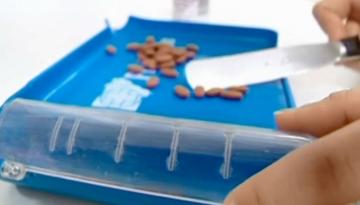The Government's drug-buying agency has announced a provisional agreement to fund the breast cancer drug Ibrance, exciting advocates who have fought long and hard for the money.
Pharmac says a deal has been reached with the medicine's supplier Pfizer which will see the life-extending drug funded for initial and secondary treatment of advanced breast cancer. It could mean more than 2000 Kiwis will eligible for the drug within its first year of funding, and 950 additional New Zealanders eligible in each subsequent year.
Consultation will begin on Wednesday to allow health professionals and the public to have their say on the proposal. If feedback is positive and the proposal is approved, patients could be prescribed Ibrance - the brand name for palbociclib - by April.
"Consultation is a very important step in our process. It's how we check that what we are proposing can be implemented by the health sector and that the people who will get the most benefit from the medicines will be able to access them," said Pharmac chief executive Sarah Fitt.
Until April, Pfizer says it will provide Ibrance for free to patients who need the drug and meet Pharmac's criteria.
Pharmac says clinical experts believe these types of medicine can "stop or slow down the progression of the cancer, giving people more time to spend with their loved ones". About 600 people are diagnosed with the cancer every year.
"We are here to make more medicines available for more New Zealanders," said Fitt.
"We do this by negotiating with medicine suppliers and running competitive pricing processes. In this instance, we ran a request for proposal process and Pfizer offered the most competitive package."
Nearly 34,000 people signed a petition calling for Pharmac to put money behind Ibrance. It was part of a long campaign to see the drug funded by the likes of breast cancer sufferer Wiki Mulholland and her husband Malcolm.
They have been paying up to $6000 a month for the medicine and have consistently called on politicians to push for funding.
The Breast Cancer Foundation has also been part of that campaign and on Wednesday said they were "ecstatic".
"Ibrance, or one of its equivalents, has been funded in countries like the UK and Australia for some time," said chief executive Evangelia Henderson.
"These drugs are now considered the standard of care for ABC (advanced breast cancer) around the world, so it's been very painful for patients to have New Zealand lagging behind.
"We're especially pleased that the plan is to fund Ibrance both as an initial treatment, and for patients whose ABC has progressed after earlier treatments we believe as many Kiwis as possible should have access to this life-extending drug."
Henderson said New Zealand was now ahead of Australia, where Ibrance is only funded for initial treatments.
"It's a new feeling for us, and it's great."
She said Ibrance is less toxic than chemotherapy, and as it can be taken orally, is easier for patients than chemotherapy infusions. This would also have the effect of reducing pressure on chemotherapy suites.
The Breast Cancer Aotearoa Coalition (BCAC) also said it was "delighted" by the news.
"This will be a huge relief for the hundreds of New Zealand women who are struggling to self-fund this medicine," said BCAC’s Chair, Libby Burgess.
"It's also great that the manufacturer Pfizer will provide Ibrance free of charge from now until April."
Burgess said while the funding was welcomed, it was important to acknowledge the many women who hadn't lived to see it.
Since July 2019, Pharmac has approved funding for nine new medicines and increased access to 26. In September, the Government unveiled a major $60 million cash injection into Pharmac has part of its 10-year cancer plan. Its budget last year was $1 billion, but not just for cancer medicine.
The Government's cancer plan also included setting up a national cancer agency and developing cancer-specific quality-performance indicators. The Cancer Control Agency was opened in December.
If elected, National has promised to set aside $200 million for a fund dedicated to buying cancer drugs.
Some advocates have called for Pharmac's budget to be doubled.



